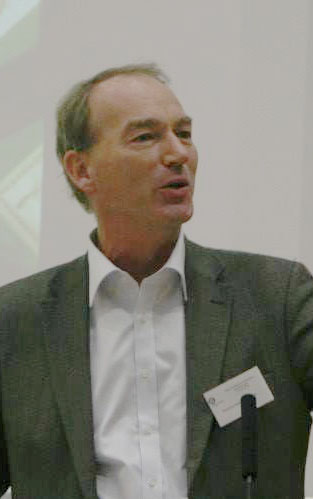Letter from the president
Dear EASA members,
In the last Newsletter, we reported from the Annual General Meeting entitled ‘Making Anthropology Matter’ in Prague. Several publications based on the proceedings at this meeting are forthcoming, and the policy paper ‘Why anthropology matters’, authored by the EASA Executive, is now available online at the EASA website. For the time being, it exists in English, French, Spanish, German, Norwegian, Czech, Hungarian and Polish versions. We are hoping to make it available in more European languages soon, and meanwhile, we would like to encourage you to spread the policy paper in your networks.
Making anthropology more visible and showing its intellectual and practical relevance is a priority of the present Executive, and for this reason, we welcomed the idea of a World Anthropology Day initiated by the AAA. In the US, it was celebrated on 18 February, aiming to showcase ‘what anthropology can achieve’ through various public events at schools, museums, campuses and elsewhere. EASA and European anthropology did not take part. The issue has been discussed in the WCAA (World Council of Anthropological Associations), and the date in February is not suitable for every country. We are currently looking into the possibilities of creating a European anthropology day (or week), an alternative being to leave the initiative to the national associations.
A different form of outreach concerns collaboration with kindred organisations, and we have now formally established sisterhood with SIEF, the International Society for Ethnology and Folklore. Our two associations are complementary in their thematic focus and on a practical level as well - we organise our main conferences in alternating years, and we already have considerable overlap in our memberships. There will be possible benefits for members of both organisations.
A matter of great concern to the academic community has been the recent developments in Turkey. In effect, the Turkish authorities have made the practicing of academic freedom a criminal offence through their harsh verbal attacks and threats against supporters of ‘Academics for peace’, and who were signatories of the petition ‘We will not be a party to this crime’. Some of the signatories have lost their jobs, and many were detained by the police following the call for an end to state violence in south-eastern Turkey. The EASA Executive has expressed its concern in a letter to the Turkish government.
One of the most important initiatives in which EASA is currently involved, is LIBRARIA. Our secretary, Alberto Corsín Jiménez, was instrumental in setting up this network, which was launched in February 2015. LIBRARIA is a collective of journals, learned societies and research libraries in Europe and North America, aiming to facilitate and develop scenarios for open access publishing in the social sciences and humanities. Having grown quickly since its inception, LIBRARIA is now moving to the next step, formalising its organisational structure and exploring funding opportunities. It is a source of great pride to me that EASA is at the forefront of the open access transition in academic publishing, which is at the same time intellectually necessary, ethically commendable, technologically possible and very challenging to accomplish in practice.
As I wrote in the last Newsletter, anthropology in Europe is faced with important challenges in the coming years. Paradoxically, while our discipline has been losing ground at universities in many countries, anthropological perspectives and analyses are more important than ever. This is nowhere more evident than in contemporary Europe, where controversies and conflicts with a strong identity component are mounting at different levels and in many areas, from the ‘Brexit’ referendum to the rise of xenophobic movements, from the ongoing refugee crisis to growing uncertainty around the future of European cooperation.
These and other European issues will doubtless be discussed in and outside of the seminar rooms at Bicocca (Milan) in July. However, although EASA is a European association, it is not a Europeanist one, and the plenaries and panels at EASA16 display an impressive breadth in thematic and geographic scope. Hopefully, there is something of interest there for everyone.
Having said this, I have to confess that the selection process in the Scientific Committee was a very difficult one. We received 330 panel proposals, but were only able to accept 140. As a result, a great number of excellent panels had to be rejected. The mismatch between interest and scaling has prompted a discussion about the size of future conferences. It may be practically possible to accept a far greater number of panels, but this would affect the atmosphere and structure of the conference, and would, in the view of some, be detrimental to the EASA spirit of intimacy and familiarity. As every social anthropologist knows, a social system cannot grow indefinitely without changing its character. So there is a real predicament here and an issue for the Executive Committee to discuss in view of the of the next conference, whose organisers we will interview in Milan. At the same time, let us not forget that the huge interest in the conference is both exhilarating and encouraging. So in spite of intimations of dark clouds over European anthropology (and even darker clouds over Europe), what we do matters, and we can make a real difference for the better, simply by doing anthropology and making it known.
Warm regards,
Thomas Hylland Eriksen
President







